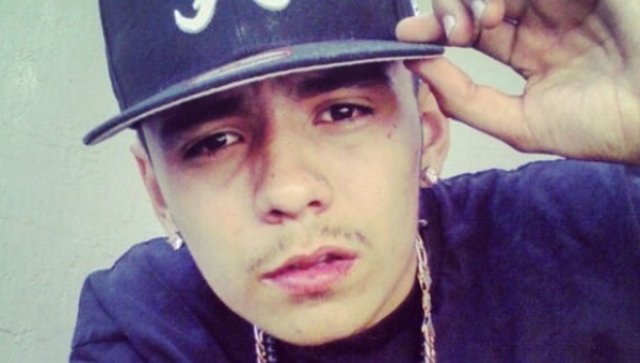
While international media floods to cover the killing of police officers in the United States, the deaths of Latinos often go unnoticed. The police killings of Black men Philando Castile and Alton Sterling, which have sparked angry protests, have also justly occupied the news waves, but the death of four Latinos this week slipped by.
“The media never focused on Latinos,” Gloria Hernandez Cruz, who organises with Stolen Lives in Fresno, California told teleSUR. She said that over 80% of victims of police killings in Fresno since 2000 were Latino, but that international media only comes to report on incidents when a white person dies — such as this week.
Police shot and killed 24-year-old Melissa Ventura, a mother of three, on July 5 in Yuma, Arizona. Official accounts say she was holding a knife when they shot her and that they were called for a case of domestic violence.
“She was the heart and soul of my family,” Ventura's sister Tiffany told KYMA. “I don't know what we are going to do without her, the only thing I can say is that her kids will know how much she loved them.”
The day before, police in San Jose, California were called to Anthony Nuñez's house, who the police chief said was then described as suicidal. Nuñez reportedly left the house with a gun when police arrived, and after 14 minutes of police trying to convince him not to kill himself, they shot Nuñez instead. He was 19 years old.
Local media reported that neighbours denied he was armed and that no one was allowed to approach him to talk him out of suicide.
"Never in a million years would I think he would take his (own) life," his mother told the press. "There are other methods of taking someone down without shooting to kill ... I don't understand why it always has to be fatal."
Two Latinos were killed by police on Sunday: Pedro Villanueva from Fullerton, California and Raul Saavedra-Vargas from Reno, Nevada.
Villanueva, 19, was reportedly fleeing uniformed police in his car when undercover highway patrol officers shot at his moving vehicle — a tactic banned by major police departments.
Raul Saavedra-Vargas was also fleeing a traffic stop when he almost drove through downtown's Biggest Little City Wing Fest — a popular chicken-eating festival — and was shot dead. Police said that they opened fire when they saw him driving into the street festival and approaching a cop.
Hernandez Cruz said that she has to work independently to collect statistics about police killings and inform her community, which otherwise would not know the extent of police brutality.
While statistics clearly show that Black people are disproportionately killed by police, few numbers exist for Latinos, who can occupy several demographic categories. Of the estimates that do exist, Latino deaths are fairly proportional, except in some counties with a high concentration of Latinos: in Los Angeles County, 14 of the 23 people killed by police were Latino, who make up roughly half of the population.
To explain the discrepancy between Latino and Black victims, some point to the more explicit history of law enforcement and Black slaves or to the high representation of Latinos in police departments.
Hernandez Cruz also pointed to the culture of silence after the police killings of Latinos, in contrast to those following Black killings. The mentality among young Latinos to “not snitch,” she said, comes from cops who are “starting to gear up and starting protecting to their own.”
[Reprinted from teleSUR English.]
Like the article? Subscribe to Green Left now! You can also like us on Facebook and follow us on Twitter.